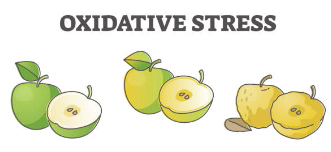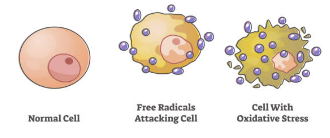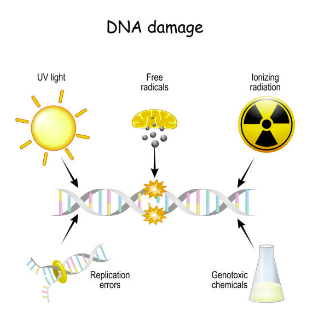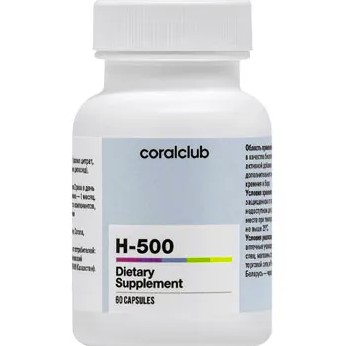Importance of Antioxidants in Our Health
In today’s fast-paced world, where we are constantly exposed to pollutants, unhealthy diets, and stress, maintaining good health can be challenging. One crucial aspect of health that has gained significant attention in recent years is the role of antioxidants. These powerful compounds play a vital role in protecting our bodies from oxidative stress, which is linked to various chronic diseases and aging. This article delves into the beneficial and preventive effects of antioxidants and their importance in our overall health.
Understanding Antioxidants
Antioxidants are molecules that inhibit the oxidation of other molecules. Oxidation is a chemical reaction that can produce free radicals, unstable atoms that can damage cells, leading to oxidative stress. Free radicals are generated through normal metabolic processes, but their production can be increased by external factors such as pollution, radiation, smoking, and unhealthy diets.
The body has its own antioxidant defenses, including enzymes like superoxide dismutase and catalase. However, these endogenous antioxidants are often not enough to neutralize all the free radicals. This is where dietary antioxidants come into play. These are obtained from various foods, particularly fruits and vegetables, and include vitamins (such as vitamin C and E), minerals (such as selenium), and phytochemicals (such as flavonoids and carotenoids).
The Beneficial Effects of Antioxidants
-
Protection Against Chronic Diseases: One of the most significant benefits of antioxidants is their ability to protect against chronic diseases. Research has shown that oxidative stress contributes to the development of many chronic conditions, including heart disease, diabetes, cancer, and neurodegenerative diseases. By neutralizing free radicals, antioxidants help reduce oxidative stress, thereby lowering the risk of these diseases.
For instance, vitamin E, a potent antioxidant, has been shown to protect against heart disease by preventing the oxidation of low-density lipoprotein (LDL) cholesterol, which is a key step in the development of atherosclerosis. Similarly, flavonoids found in tea, wine, and various fruits have been associated with a reduced risk of certain cancers and improved heart health.
-
Anti-Aging Properties: Oxidative stress is a major factor in the aging process. It damages cellular components, including DNA, proteins, and lipids, leading to the deterioration of tissues and organs over time. Antioxidants help mitigate these effects by protecting cells from damage and promoting cellular repair mechanisms.
Vitamin C, for example, is crucial for collagen synthesis, which is essential for maintaining skin elasticity and preventing wrinkles. Carotenoids, like beta-carotene, lutein, and zeaxanthin, protect the skin from UV radiation and improve skin health. By incorporating antioxidants into our diets, we can potentially slow down the aging process and maintain youthful, healthy skin.
-
Immune System Support: Antioxidants play a pivotal role in supporting the immune system. They help protect immune cells from oxidative damage, ensuring they function optimally. Vitamin C, a well-known immune-boosting antioxidant, enhances the production and function of white blood cells, which are crucial for fighting infections.
Selenium, another powerful antioxidant, supports the immune system by reducing oxidative stress and inflammation. It is also essential for the production of thyroid hormones, which regulate immune responses. Adequate intake of antioxidants can therefore enhance our body’s ability to fend off infections and maintain a robust immune system.
-
Brain Health: The brain is particularly vulnerable to oxidative stress due to its high oxygen consumption and lipid-rich environment. Oxidative damage is implicated in various neurodegenerative diseases, such as Alzheimer’s and Parkinson’s disease. Antioxidants help protect brain cells from oxidative damage and may reduce the risk of these debilitating conditions.
Polyphenols, found in berries, tea, and cocoa, have been shown to improve cognitive function and reduce the risk of cognitive decline. Omega-3 fatty acids, which have antioxidant properties, also support brain health by reducing inflammation and protecting neurons from damage.
The Preventive Effects of Antioxidants
-
Reducing Inflammation: Chronic inflammation is a common underlying factor in many diseases, including heart disease, diabetes, and cancer. Antioxidants help reduce inflammation by neutralizing free radicals that trigger inflammatory pathways. Curcumin, the active compound in turmeric, is a potent antioxidant with strong anti-inflammatory properties. It has been shown to reduce markers of inflammation and improve symptoms in conditions like arthritis and inflammatory bowel disease.
-
Preventing DNA Damage: Oxidative stress can cause mutations in DNA, which can lead to cancer and other genetic disorders. Antioxidants protect DNA from oxidative damage, thereby reducing the risk of mutations and maintaining genetic stability. Resveratrol, found in grapes and red wine, has been shown to protect DNA from oxidative damage and has potential anti-cancer properties.
-
Enhancing Detoxification: Antioxidants support the body’s natural detoxification processes by neutralizing free radicals and enhancing the function of detoxifying enzymes. Glutathione, one of the most powerful endogenous antioxidants, plays a crucial role in detoxifying harmful substances in the liver. Consuming foods rich in antioxidants, such as cruciferous vegetables, can enhance glutathione levels and support detoxification.
-
Supporting Eye Health: The eyes are particularly susceptible to oxidative damage due to constant exposure to light and oxygen. Antioxidants like lutein and zeaxanthin, found in leafy greens and eggs, protect the eyes from oxidative damage and reduce the risk of age-related macular degeneration and cataracts. Vitamin C and E also play a role in maintaining eye health by protecting against oxidative stress.

The Importance of Antioxidants in Our Diet
Given the numerous benefits and preventive effects of antioxidants, it is essential to incorporate them into our diets. A diet rich in fruits, vegetables, nuts, and whole grains provides a diverse range of antioxidants that work synergistically to protect our health. Some key sources of antioxidants include:
- Fruits and Vegetables: Berries, citrus fruits, tomatoes, spinach, kale, and broccoli are excellent sources of various antioxidants.
- Nuts and Seeds: Almonds, walnuts, sunflower seeds, and flaxseeds are rich in vitamin E and other antioxidants.
- Whole Grains: Brown rice, oats, and quinoa contain antioxidants like selenium and phenolic acids.
- Beverages: Green tea, coffee, and red wine (in moderation) are rich in polyphenols, which have potent antioxidant properties.
The Strongest Antioxidant in the World: H-500

H-500 represents a significant advancement in the field of antioxidant supplements. Its unique formulation, high bioavailability, rapid action, and selective antioxidant properties set it apart as the strongest antioxidant in the world. By providing robust protection against oxidative stress and supporting various aspects of health, H-500 is a valuable tool in the pursuit of optimal health and longevity. In a world where oxidative stress is a constant threat, H-500 offers a powerful defense, helping us maintain vitality and well-being.
Conclusion
Antioxidants play a crucial role in maintaining our health by protecting against oxidative stress, reducing inflammation, and supporting various bodily functions. They help prevent chronic diseases, slow down the aging process, and enhance immune and brain health. By incorporating a variety of antioxidant-rich foods into our diets, we can harness their powerful benefits and support our overall well-being. In a world where oxidative stress is a constant threat, antioxidants are our natural defense, helping us maintain a healthier and more vibrant life.
Resources:
https://www.medicalnewstoday.com/articles/301506
https://en.wikipedia.org/wiki/Antioxidant
How to purche products with 20% discount?
When you register, you will be signed into Rut’s Kalnina’s structure, and she will be happy to answer all your questions as your consultant.
